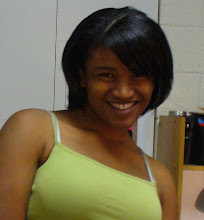After reading Dr. Burns's article Four dimensions of significance: Tradition, method, theory, originality" I am left wishing I had his insight before writing my midterm! I also wish we had more time in class for him to discuss his achievements, because he clearly accomplished tons throughout his career. In his article he explores the importance of research in four categories: tradition, method, theory, and originality. I have to agree with him on all his points, he makes a lot of sense (if I'm understanding him right... hopefully I am). He is mixing research, technology, and teaching, in a timeless way that is beneficial to all scholars.
He talks a lot about the importance of research, not in looking toward the past, but constant findings of new information to apply to current technology. He states, "The more I worked with computers, the more I realized how much more could be programmed for them to do. The potential seemed endless to me, and it changed the kind of teacher and scholar I was. The research enterprise must never stop, for research can never be finished; the methods of inquiry and of curiosity are constantly at work" (4). Do you know what this means? It means that technology also must never stop. As long as people like him are working toward the next big thing (research) we (teachers) must continue to try to keep up in our classroom so our students do not fall behind. This is not the problem. The problem is how do we keep up with this never ending technology? Well, Burns has some thoughts on this too.
"I wanted to let composition teachers know that help was on the way to support the traditions we valued in teaching writing. I wanted composition teachers to know that the advancements in microprocessing and the achievements in speed, in storage, and in interface design were being conceived and implemented quickly... Our research had to hurry on the one hand and yet be patient on the other" (3). This help will not be in the form of a book, however, because they are easily dated. Instead he states "As Kate Kiefer and Cindy Selfe were dreaming about a journal for the computers and writing community, they invited me to write a note about how artificial intelligence would one day help compositions teachers" (3). An interesting concept. On page four he goes on to say: "the first rule of AI is if it works, if it run, it's not artificial intelligence anymore" (4). So, my question is, how does this work!!??
Subscribe to:
Post Comments (Atom)

Its a paradox really. Essentially the same as when we buy computers, the next day the companies come out with something new. The next big thing in research will be outdated before we even get to know it completely. We need to pick and choose what we use in our classrooms and to further our pedagogy and stick with it. Constant change, unless its changer for the better and not change for change's sake, will hurt more than help. I liked that last line as well about AI not being AI if it works.
ReplyDelete